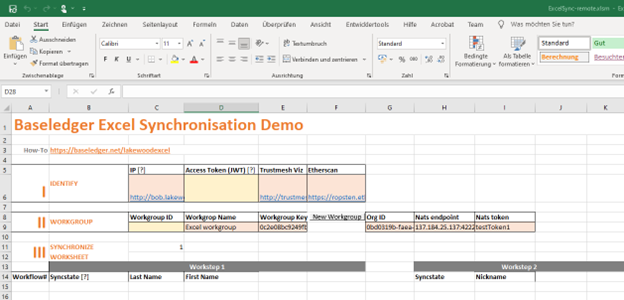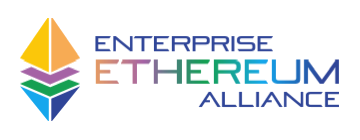In December, 2021, the Core Developer Community of the Baseline Protocol, an EEA Community Project, Demonstrated How to Baseline an Excel Spreadsheet with Other Systems of Record
Nearly 35 years since its advent, Microsoft Excel is now a staple for many organizations. It’s used to input, manage, store, report and analyze sensitive data on a daily basis. Forrester Research has found that 80% of businesses rely on Excel[1], even in the most sophisticated financial institutions, and it remains essential for accountants and auditors. Bank reporting still relies on Excel, and asset management is almost entirely done on Excel. Every minute of every day, sensitive data is packaged in an Excel spreadsheet and sent from one counterparty to another.
As we enter the age of verified multiparty workflows, and more information management systems turn to high-security coordination techniques such as the Baseline Protocol, it’s only natural that Microsoft Excel should be one of the principal baselined applications. Companies today need to prove they have the same information (and prove attributes of that information to others) without revealing sensitive data and business logic. With much of that information sitting on spreadsheets and only nominally secured, it’s high time to get them baselined.
So, that’s what we did. We baselined Excel. In two different ways. And then we open sourced both demonstrations, so that more developers can do the same. In both cases, we made it possible to use zero-knowledge proofs – baseline proofs, as we call them – to verifiably synchronize data between an Excel spreadsheet and either another Excel sheet, or another information management system entirely.
Baseledger Excel Demo by Unibright.io
As a demonstration on how to use our public permissioned blockchain Baseledger, Unibright presented an Excel demo of two participants that want to baseline the synchronization of a Name field in Excel.
One of the simplest cases for baselining is shown in this example, where two or more Excel spreadsheets are baselined simply to ensure that changes to a cell in one sheet are kept synchronized with changes in a corresponding cell in another sheet.
Proposed state changes to baselined Excel fields in the following demo are reliant on approval by both coordinating parties. When a proposed state change is agreed to, a proof representing the agreement must be verified. Once this statement is verified to be true, this proof is stored on-chain and the Excel fields can be updated. Altogether, the baseline method applied between Excel documents provides a verified guarantee of correctness and consistency between multiple parties. This approach prevents discrepancies from going unnoticed or needing to be remediated at a later date, where it becomes costly for enterprises.
In the demo we defined the workflow in two steps.
The first one is agreeing on LastName and FirstName, the second one is agreeing on a nickname. All suggestions, versions and approvals are summarized in a “TrustMesh,” a multi-dimensional version-approval graph which was already used in the SAP2SAP synchronization demo by our partners from Concircle. Every TrustMesh element is anchored in Baseledger, and the finalization is additionally anchoring all Baseledger steps in Ethereum Ropsten.

Resources
- Recording of the live demo from the Baseline show on December 8, 2021
- Complete walkthrough demo by Unibright developers
- Full documentation around the work is located here
Excel Connector by Provide
The team at Provide worked with Biswashree Dey from Defii to extend the Baseline Protocol framework to Microsoft Excel users, to work towards providing financial inclusivity in enterprise ecosystems.
The Provide Excel connector leverages the Baseline Protocol through Provide powered APIs that enable synchronization between Excel and any other System of Record (SOR). Utilizing the soon-to-be open-source Baseline API, the connector leverages a mapping API to align data structures between SORs. As data in an Excel spreadsheet is updated, the Baseline API is used to enforce state transitions and guarantee synchronization among workgroup participants.
Resources
- Provide Excel connector demo by Biswashree Dey
Without a doubt, baselining Excel is a significant achievement that will help countless users ensure data consistency across parties, streamline business and reduce instances of disputes related to data discrepancies. We’re thrilled to reach this milestone.
Keep up to speed on all things Baseline Protocol on our blog or social channels (Twitter and LinkedIn).
[1] https://www.excel4business.com/resources/research-into-excel-use.php
About EEA Community Projects
EEA Community Projects provide a hub for open source-based standards development in the Ethereum industry. It includes critical Ethereum projects like the Baseline Protocol, a framework that enables enterprises to privately synchronize complex, multiparty business processes. Find out more about EEA Community Projects here.
Learn more about becoming an EEA Member and be sure to follow us on Twitter, LinkedIn and Facebook for all the latest.
Authors: Baseline Outreach Team
